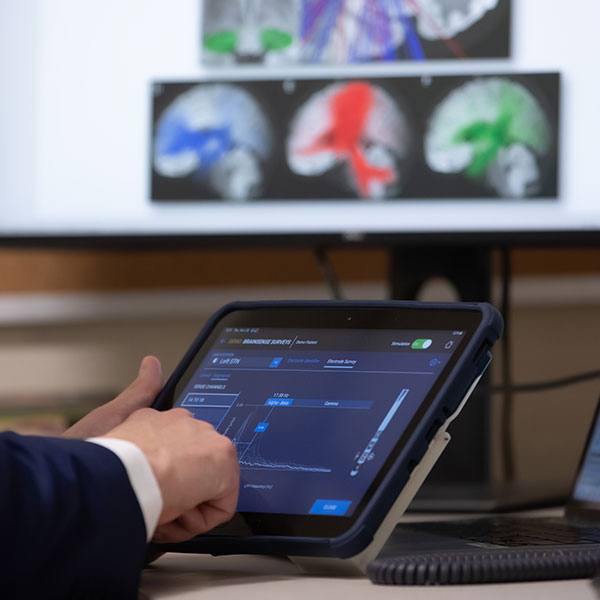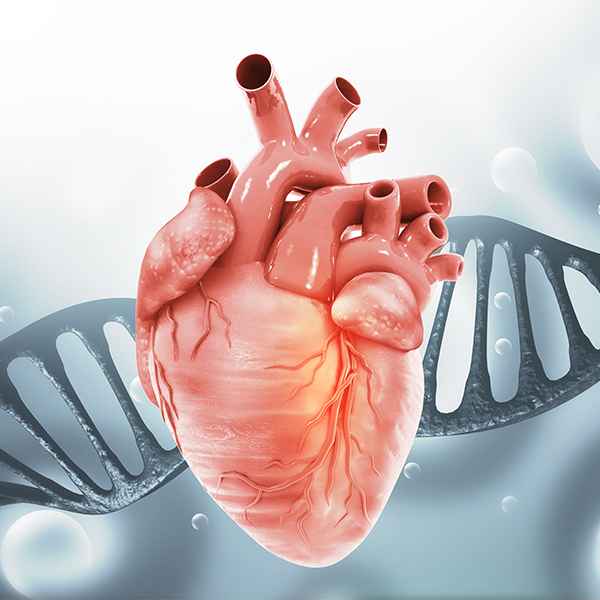-
Science Saturday: Is your family at risk for genetic cardiovascular disease?
With cardiovascular disease a leading cause of death, it’s fair to say that many people have been touched by this disorder. Maybe a family member died suddenly of a heart attack, or a friend suffered a disabling stroke. February is American Heart Month, a great time to talk about the precision approach Mayo Clinic Center for Individualized Medicine is taking to improve cardiovascular health.
Genomic screening to improve heart health
Mayo Clinic screens patients and their families for familial hypercholesterolemia, also known as FH, through the FH Clinic. FH is an inherited condition that runs in families and leads to high levels of blood cholesterol and plaque build-up in arteries. LDL cholesterol levels are often above 190 mg/dL. This disorder affects one of every 14 cases of high cholesterol. But, research has shown 80 to 90 percent of patients with this condition in the United States don’t know they have it. Sometimes people have recognizable symptoms, but most times there are no red flags, until a premature heart attack or another sudden cardiac event such as stroke.

“FH is a genetic cardiovascular disease that will not improve with diet and exercise alone. That’s why it is very important to diagnose and intervene with cholesterol-lowering therapy,” said Iftikhar Kullo, M.D., a Mayo Clinic cardiologist. “At Mayo Clinic, we can test children as young as eight for this disease, and can prescribe medication that may prevent future heart damage.”
People with LDL cholesterol levels above 190 mg/dl or those with a family history of cardiovascular disease should be screened for FH.
A potential silent killer
Aubrey Manahan is a patient whose FH could have gone undetected. Her healthy glow, active lifestyle and trim build belie she has cardiovascular disease. For patients like her who aren’t screened and don’t recognized the disease, FH could be a silent killer. They are at risk of heart attack or stroke at a young age.

Manahan, who both works at Mayo Clinic as a registered nurse and is a patient at Mayo, discovered at age 18 that she has high cholesterol. Her mother had triple bypass surgery when she was in her 60’s and her grandmother died of a heart attack at 64. Determined to avoid that same fate, Manahan has been monitoring and controlling her cholesterol levels with diet, exercise and statin therapy. Genetic testing at Mayo’s FH Clinic confirmed hers is an inherited disorder. She has a variation in the LDL receptor gene – a change that may have been passed down to her daughters.
“I’m grateful that I learned about this at a young age. I want the same for my daughters, so will have them screened when they are starting school” said Manahan. “If they test positive, I can tell them, ‘your high cholesterol is due to a genetic variant you got from mommy. It’s not because you ate too many cookies.’ They can look at me and know it can be controlled with medication and healthy lifestyle, and it’s nothing to be afraid of.”
Manahan can eventually have her preschool children tested, monitored and treated. Screening before puberty is most effective. The benefit of screening family members for FH is that it can detect the disease in people who don’t have extremely high cholesterol and may otherwise go undetected — until it’s too late. Health care providers can intervene with a new class of drugs found to be more effective than traditional statin therapy.
Benefits of understanding genetic risk
Research from Dr. Kullo and colleagues at Mayo Clinic shows that it is helpful for patients to understand their genetic risk. The findings, published in the March 22, 2016 edition of Circulation, found that patients who were told about their genetic and conventional risk for coronary heart diseases had lower levels of bad cholesterol than those who were only told about their conventional risk. One reason is that once a patient and their provider knew about the genetic risk, cholesterol lowering drugs were added to manage their disease.
The FH Clinic is a collaboration between the Center for Individualized Medicine, Department of Cardiovascular Diseases and the Department of Clinical Genomics.
###
Join the conversation
For more information on the Mayo Clinic Center for Individualized Medicine, visit our blog, Facebook, LinkedIn or Twitter at @MayoClinicCIM.
Save the date for this year’s Individualizing Medicine Conference 2018: Advancing Care Through Genomics. It will be held Sept. 12-13, 2018.
###
Related Articles








